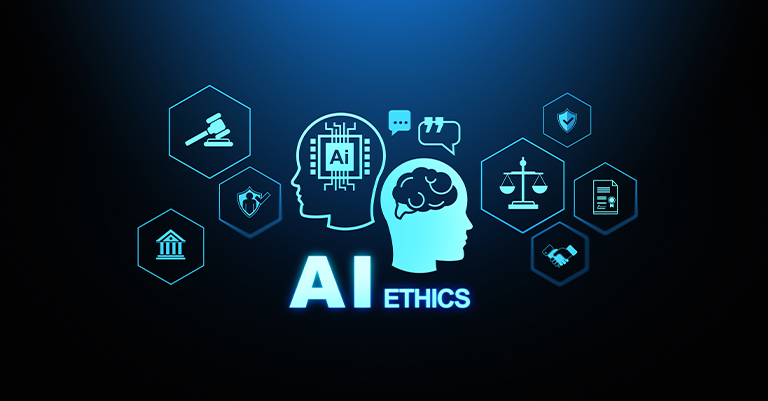#computervisionethics risultati di ricerca
Computer vision ethics starts with a simple question: Just because we can see everything, should we? Cameras are everywhere, AI can identify everyone—but privacy, consent, and human dignity must guide how we use this power. #ComputerVisionEthics #DigitalPrivacy…
Surveillance technology powered by computer vision can enhance security or enable oppression—the difference lies in governance, transparency, and accountability. Ethical frameworks must guide AI vision applications in public spaces. #ComputerVisionEthics #AISurveillance…
Emotion recognition from facial expressions raises profound ethical questions. Should employers monitor employee emotions? Should advertisers detect frustration? The technical capability doesn't justify every application. #ComputerVisionEthics #EmotionRecognition…
The panopticon was Jeremy Bentham's vision of a prison where guards could watch all prisoners without being seen. Today's computer vision systems risk creating a digital panopticon. The question is: Who's watching the watchers? #ComputerVisionEthics #DigitalPanopticon…
Biometric consent matters. You can change passwords but not facial features. Once your biometric data is compromised, it's compromised forever. Permanent identifiers require permanent protection. #ComputerVisionEthics #BiometricPrivacy #PermanentIdentifiers…
Public space surveillance with facial recognition changes the nature of anonymity in society. The ability to be unknown in crowds has historically protected protesters, whistleblowers, and marginalized groups. #ComputerVisionEthics #PublicAnonymity #DigitalRights
Powerful vision technology demands thoughtful deployment. As AI systems recognize faces and analyze behavior, protecting privacy becomes paramount. Learn technical and policy frameworks for ethical computer vision that respects human dignity. 🛡️ #ComputerVisionEthics #AIPrivacy…
Navigate computer vision regulation proactively. With laws evolving globally, understanding compliance requirements is crucial. This guide covers GDPR implications, biometric data protection, and industry-specific requirements for ethical deployment. ⚖️ #ComputerVisionEthics…
Facial recognition accuracy varies dramatically across demographics, raising serious questions about equitable AI deployment. Ethical computer vision requires diverse training data and continuous bias testing to ensure fair treatment for everyone. #ComputerVisionEthics…
Facial recognition accuracy varies dramatically by ethnicity and gender—not because the technology is inherently biased, but because the training data reflects historical inequalities. Fixing AI bias requires fixing data representation first. #ComputerVisionEthics…
Computer vision raises critical ethical questions. From facial recognition to surveillance, explore the responsibilities and challenges of visual AI technology. Building ethical vision systems matters. 👁️⚖️ #ComputerVisionEthics #AIResponsibility #TechEthics…
Computer vision ethics isn't just about privacy—it's about consent, accuracy, and fairness in how AI systems "see" and judge the world. Every pixel processed carries responsibility for protecting human dignity and rights. #ComputerVisionEthics #PrivacyTech #ResponsibleAI…
With great vision comes great responsibility! Explore the ethical challenges of facial recognition, surveillance AI, and visual data privacy. Building computer vision that respects human dignity. 👁️⚖️ #ComputerVisionEthics #AIPrivacy #ResponsibleTech andrewroche.ai/computer-visio…
Public space surveillance with facial recognition changes the nature of anonymity in society. The ability to be unknown in crowds has historically protected protesters, whistleblowers, and marginalized groups. #ComputerVisionEthics #PublicAnonymity #DigitalRights
Emotion recognition from facial expressions raises profound ethical questions. Should employers monitor employee emotions? Should advertisers detect frustration? The technical capability doesn't justify every application. #ComputerVisionEthics #EmotionRecognition…
Biometric consent matters. You can change passwords but not facial features. Once your biometric data is compromised, it's compromised forever. Permanent identifiers require permanent protection. #ComputerVisionEthics #BiometricPrivacy #PermanentIdentifiers…
Surveillance technology powered by computer vision can enhance security or enable oppression—the difference lies in governance, transparency, and accountability. Ethical frameworks must guide AI vision applications in public spaces. #ComputerVisionEthics #AISurveillance…
The panopticon was Jeremy Bentham's vision of a prison where guards could watch all prisoners without being seen. Today's computer vision systems risk creating a digital panopticon. The question is: Who's watching the watchers? #ComputerVisionEthics #DigitalPanopticon…
Computer vision ethics starts with a simple question: Just because we can see everything, should we? Cameras are everywhere, AI can identify everyone—but privacy, consent, and human dignity must guide how we use this power. #ComputerVisionEthics #DigitalPrivacy…
Facial recognition accuracy varies dramatically by ethnicity and gender—not because the technology is inherently biased, but because the training data reflects historical inequalities. Fixing AI bias requires fixing data representation first. #ComputerVisionEthics…
Facial recognition accuracy varies dramatically across demographics, raising serious questions about equitable AI deployment. Ethical computer vision requires diverse training data and continuous bias testing to ensure fair treatment for everyone. #ComputerVisionEthics…
Computer vision ethics isn't just about privacy—it's about consent, accuracy, and fairness in how AI systems "see" and judge the world. Every pixel processed carries responsibility for protecting human dignity and rights. #ComputerVisionEthics #PrivacyTech #ResponsibleAI…
Navigate computer vision regulation proactively. With laws evolving globally, understanding compliance requirements is crucial. This guide covers GDPR implications, biometric data protection, and industry-specific requirements for ethical deployment. ⚖️ #ComputerVisionEthics…
Powerful vision technology demands thoughtful deployment. As AI systems recognize faces and analyze behavior, protecting privacy becomes paramount. Learn technical and policy frameworks for ethical computer vision that respects human dignity. 🛡️ #ComputerVisionEthics #AIPrivacy…
With great vision comes great responsibility! Explore the ethical challenges of facial recognition, surveillance AI, and visual data privacy. Building computer vision that respects human dignity. 👁️⚖️ #ComputerVisionEthics #AIPrivacy #ResponsibleTech andrewroche.ai/computer-visio…
Computer vision raises critical ethical questions. From facial recognition to surveillance, explore the responsibilities and challenges of visual AI technology. Building ethical vision systems matters. 👁️⚖️ #ComputerVisionEthics #AIResponsibility #TechEthics…
Something went wrong.
Something went wrong.
United States Trends
- 1. Thanksgiving 2.41M posts
- 2. Post Malone 4,011 posts
- 3. Lions 98.1K posts
- 4. Packers 69.8K posts
- 5. Dan Campbell 7,767 posts
- 6. #GoPackGo 11.4K posts
- 7. McDuffie 3,252 posts
- 8. Romo 5,620 posts
- 9. Malik Davis 2,015 posts
- 10. #ChiefsKingdom 4,687 posts
- 11. #KCvsDAL 4,318 posts
- 12. Wicks 11.8K posts
- 13. Kenneth Murray N/A
- 14. Jordan Love 18.3K posts
- 15. Micah Parsons 13.5K posts
- 16. Goff 11.7K posts
- 17. #DallasCowboys 3,941 posts
- 18. Kelce 12.9K posts
- 19. Jack White 10.8K posts
- 20. Caleb Wilson 1,754 posts


